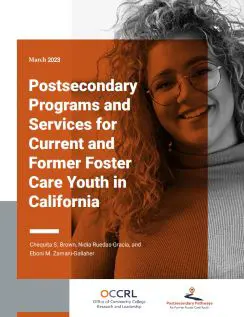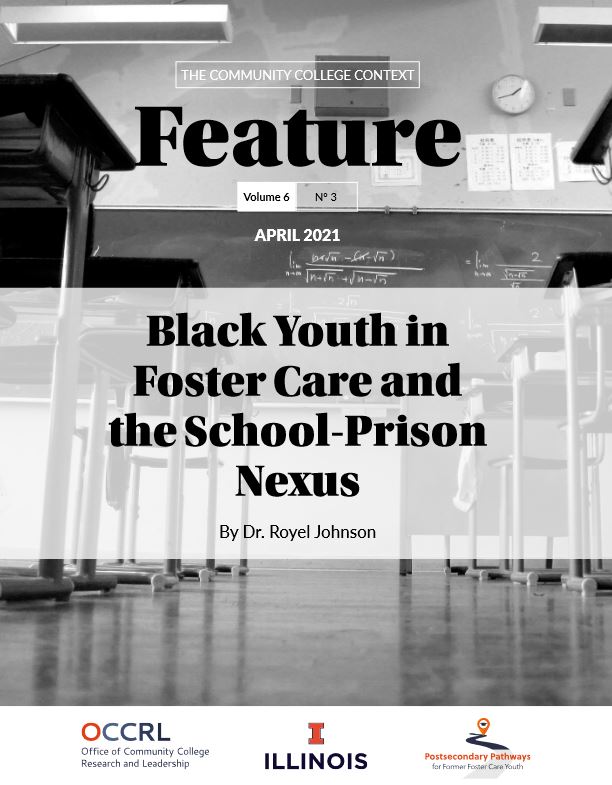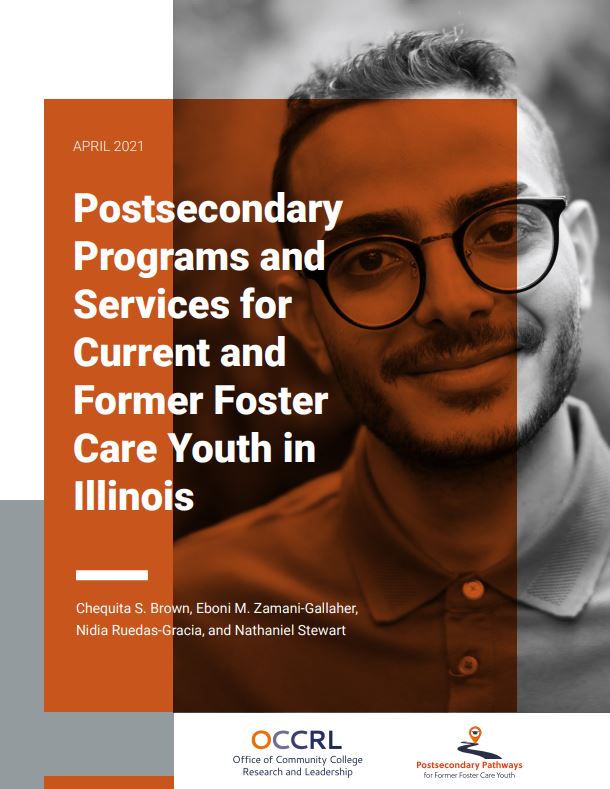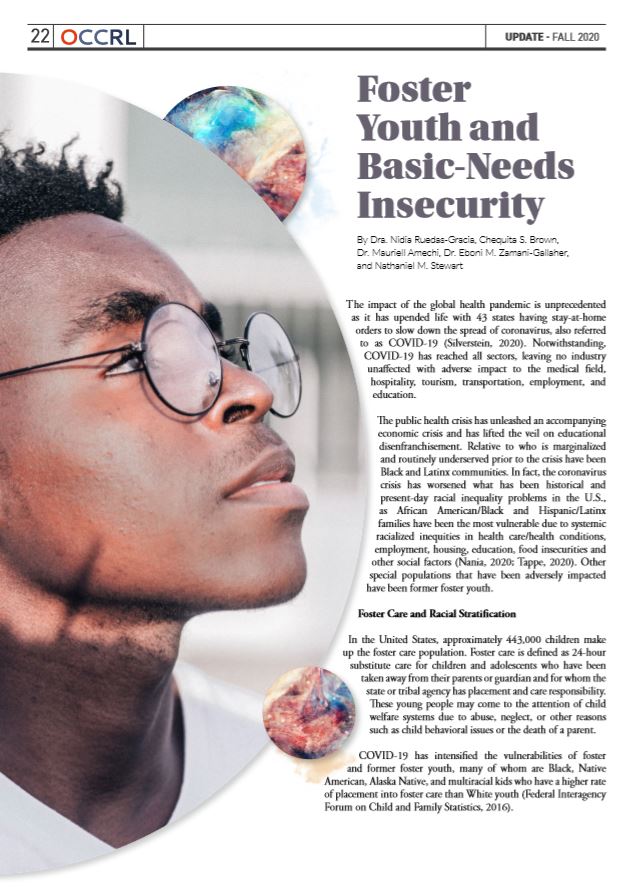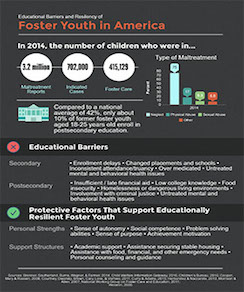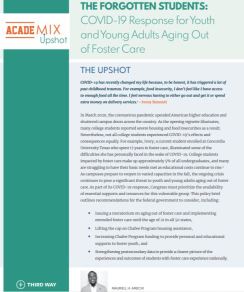Summary
The Postsecondary Pathways for Former Foster Care Youth (PP-FFCY) reflects OCCRL’s commitment to examining and developing postsecondary pathways that support mobility for first-generation, underserved, and minoritized populations, as well as strengthening career pathways to promote seamless transitions from college to careers. This project endeavors to examine postsecondary access, opportunities, and supports for foster youth in Illinois and other states across the county in addressing access and outcomes of FFCY in Career Technical Education (CTE).
Purpose
The Postsecondary Education Pathways for Former Foster Care Youth (PP-FFCY) project is an exploratory study focused on postsecondary pathways for current and former foster youth in Illinois. OCCRL is conducting a comprehensive-needs assessment that provides a descriptive profile of current and former foster youth populations in Illinois; examines postsecondary access, opportunities, and supports for foster youth in Illinois; and addresses disparities in career and technical education (CTE) programs. This project reflects OCCRL’s commitment to examining and developing postsecondary pathways that support mobility for first-generation, underserved, and minoritized populations as well as strengthening and supporting career pathways to promote seamless transitions from college to careers.
Resources
OCCRL aims to increase postsecondary awareness, access, and attainment for current and former foster care youth by providing information on programs and other resources that offer holistic support and services. View the list of postsecondary programs and services.
Podcasts
Strategies to Cultivate a Foster-Friendly Culture on Community College Campuses
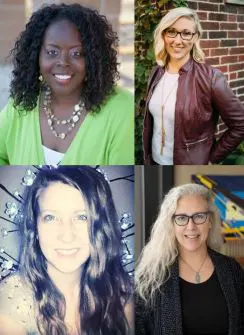 In this episode, Chequita Brown talks with Kate Danielson of the organization Foster Progress, as well as with Anna Wandtke and Tricia Wagner of Rock Valley College in Rockford, Illinois. The group discusses how to cultivate a foster-friendly culture at Illinois community colleges.
In this episode, Chequita Brown talks with Kate Danielson of the organization Foster Progress, as well as with Anna Wandtke and Tricia Wagner of Rock Valley College in Rockford, Illinois. The group discusses how to cultivate a foster-friendly culture at Illinois community colleges.
Navigating College as a Foster Care Alum
 In this episode, OCCRL research assistant Chequita S. Brown talks with Jonathan Stacy, a sophomore at Heartland Community College who is pursuing his studies and a possible career in criminal justice.
In this episode, OCCRL research assistant Chequita S. Brown talks with Jonathan Stacy, a sophomore at Heartland Community College who is pursuing his studies and a possible career in criminal justice.
Listen to the podcast and view the transcript.
Key Elements to Successfully Connecting Foster Care Youth to Educational Resources for Postsecondary Success
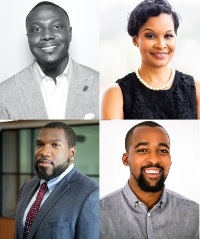 In this episode, Nathaniel Stewart talks with Mauriell Amechi, Regina Gavin Williams, and Blayne Stone Jr. about how the transitions and pathways to postsecondary education are similar and different for Black former foster care students. The scholars also discuss key elements to successfully connect foster care youth to educational resources that help advance the postsecondary education opportunities for this student population.
In this episode, Nathaniel Stewart talks with Mauriell Amechi, Regina Gavin Williams, and Blayne Stone Jr. about how the transitions and pathways to postsecondary education are similar and different for Black former foster care students. The scholars also discuss key elements to successfully connect foster care youth to educational resources that help advance the postsecondary education opportunities for this student population.
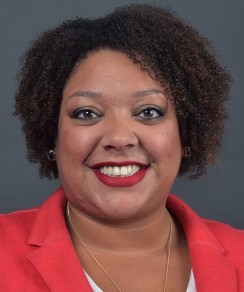
Maddy Day
The Impact of Campus-Based Support Programming on Foster Care Collegians' Postsecondary Access and Retention
In this episode, Chequita Brown of OCCRL talks with Maddy Day about the Fostering Success initiative in Michigan and the impact of campus-based support programming on foster carecollegians' postsecondary access and retention.

Patricia Palmer
How Youth-in-Care in Illinois Can Access Educational Resources to Pursue a Postsecondary Education
In this episode, OCCRL research assistant Chequita Brown continues the conversation on foster care youth by talking about with Patricia Palmer about accessing available resources in Illinois for youth-in-care who want to pursue a postsecondary education.
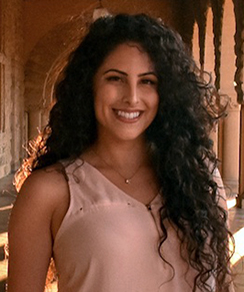
Nidia Ruedas-Gracia
Conceptualizing 'Sense of Belonging' Among Students From Historically Minoritized Racial Groups Within Higher Education
In this episode, Colvin Georges Jr., a research associate at OCCRL, talks with Dr. Nidia Ruedas-Gracia about what it means to have a sense of belonging and discusses her research in this area. They also discuss how a sense of belonging affects college students from historically minoritized racial groups.
Publications
Postsecondary Programs and Services for Current and Former Foster Care Youth in California
By Chequita S. Brown, Nidia Ruedas-Gracia, and Eboni M. Zamani-Gallaher
This brief highlights postsecondary programs and services in California that support youth in care, in addition to young adults who are aging out of foster care. Read more.
Tracking College-to-Career Pathways for Foster Youth
By Chequita S. Brown
In this OCCRL Thought Paper, Chequita S. Brown relates how tracking the data of students with foster care experience helps to recognize them as a legitimate student population. She offers recommendations on how to do this and conveys the many obstacles that can hinder the academic and career success of foster youth. Read more.
Black Youth in Foster and the School-Prison Nexus
By Royel Johnson
In this OCCRL Feature Brief, Dr. Royel Johnson argues that the foster care system, and more specifically congregate care facilities, are part and parcel to the enhancement of carceral state power. Read more.
Postsecondary Programs and Services for Current and Former Foster Care Youth in Illinois
By Chequita S. Brown, Eboni Zamani-Gallaher, Nidia Ruedas-Gracia, and Nathaniel M. Stewart
This research brief provides an overview of programs and services that helps strengthen postsecondary pathways for current and former foster youth in Illinois. Read more.
Foster Youth and Basic-Needs Insecurity
By Dra. Nidia Ruedas-Gracia, Chequita S. Brown, Dr. Mauriell Amechi, Dr. Eboni Zamani-Gallaher, and Nathaniel M. Stewart
This article discusses how COVID-19 has intensified the vulnerabilities of foster youth and former foster youth, many of whom are Black, Native American, Alaska Native, and multiracial children who have a higher rate of placement into foster care than White youth (Federal Interagency Forum on Child and Family Statistics, 2016). Read more.
(From the Fall 2020 UPDATE on Research and Leadership)
Exploring Equity in Postsecondary Education
By Heather L. Fox, Eboni M. Zamani-Gallaher
This chapter examines how postsecondary practitioners are encouraged to work collaboratively with child welfare agencies and other community-based organizations to identify and implement culturally responsive supports for former foster youth to promote early academic achievement. Read more.
The Forgotten Students: COVID-19 Response for Youth and Young Adults Aging Out of Foster Care
By Mauriell H. Amechi
This policy brief outlines recommendations for Congress to consider regarding the country's COVID-19 response, in an effort to prioritize the availability of essential supports and resources for youth and young adults who are aging out of foster care. Read more.
Voices and Viewpoints
OCCRL Presentation Demonstrates Compatibility of Open Education Resources, Photovoice
On November 14, 2023, staff members from OCCRL met with the Illinois Community College Board’s Student Advisory Committee to discuss the function and utilization of open education resources (OER) at their institutions. Dr. Gianina Baker, the associate director for evaluation, learning, and equitable assessment at OCCRL, and Ayinde Rochon, an OCCRL research assistant, gave presentations to the elected student representatives from community colleges statewide.
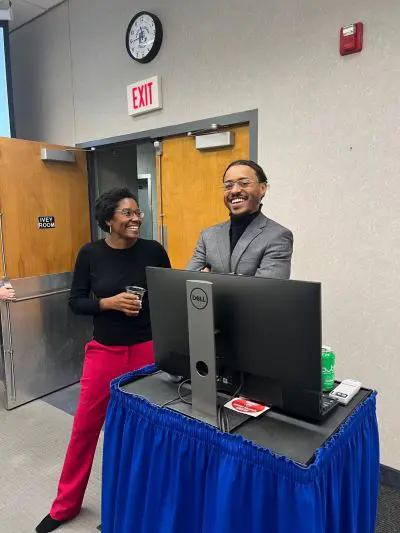
The meeting provided student leaders with professional development opportunities and a chance to represent their school highlighting topics surrounding student life, experience, and advocacy. Melvin Harrison, who serves as the liaison between the Student Advisory Committee and outside professional development consulting organizations, moderated the session. Harrison is the director for academic affairs at the Illinois Community College Board. Prior OCCRL and student trustee sessions focused on surveying the racial campus climate at the students' respective institutions and overarching college life experience.
Student representatives were presented with definitions and examples of OER and contemplated their prevalence at the institutions they represent. As explained at the presentation, open education resources are “educational materials that can be remixed, reused, and shared that use a Creative Commons license or are available in the public domain and have no restrictions for free copyright. OER can range from supplemental content to entire textbooks.” Many scholars in attendance were aware of OER and how to access them within their university, a positive sign to the OCCRL team.
Rochon’s presentation, “Photovoice to Elevate College Affordability,” described photovoice as “a participatory method that provides research participants, who often may feel voiceless in society, the opportunity to reflect on their experiences and daily realities through photography. The issues documented in the photographs are then used as a catalyst to address community challenges” (Means et al., 2019, p. 143).
The overarching goal of photovoice in an academic setting is to provide a first-person view into the lives and experiences of the subject, building empathy and understanding surrounding voice and advocacy. Photovoice and OER go hand in hand by providing a visual aspect to data surrounding student life. Rochon explained that various forms of quantitative and qualitative data such as surveys and interviews are effective at capturing student voice; however, critical arts-based methods such as photovoice bring forth a visual aspect to the data, maximizing the effectiveness of research in the academy.
Previous scholars have explained the “goals of photovoice were achieved, namely to enable people, to record and reflect their community’s strengths and concerns, to promote critical dialogue and knowledge about personal and community issues through large and small group discussions of their photographs to reach policymakers” (Osei-Kofi, 2013; Wang, 1999, p. 185). Participants are often given cameras to document their experiences over an extended period of time, followed by journal entries to explain the photos and sentiments regarding them. The researcher then codes and analyzes the data and presents photos in a gallery walk for policymakers and administrators to engage, interact, and optimistically instill change.
Rochon utilizes photovoice in his own academic research by pairing it with the method of autoethnography to study Black college student experience at predominately white institutions. By analyzing journal entries, field notes, social media posts, and peer interviews collected by the practitioner, said data is coded into themes. These themes often relate to sense of belonging, faculty engagement, racial campus climate, familial relationships, faith, and more.
Rochon then attributes fine-art photographs, both abstract and direct, that embody the coded theme. For example, a barren cornfield outside of a college apartment can represent isolation and otherization. An image of a student with their peers playing basketball at the campus recreational center can represent student-curated sense of belonging. Photovoice solely amplifies the plethora of substantial research regarding Black student experience.
After debriefing the Student Advisory Committee on the method of photovoice, the student leaders participated in a 20-minute group discussion in which they selected a photo from their phones, one that embodied themselves and their college experience. Students shared images of people, places, and foods that gave viewers a direct look into their lives.
One example of a student-captured, discussed photo was an image in which a student photographed themselves in their science lab. In addition to the overt laboratory depiction of scientists, lab coats, and safety goggles within the image, the overarching message and what it embodied to the student meant much more. This image was an explicit representation of their determination to make it to this exact level in their academic journey. Surpassing electives and prerequisites, the student is now able to practice their skills tangibly. A testament and reminder for themselves, and anyone viewing, that they belong in this space and are looking forward to the future.
This activity generated empathy and understanding in a room that, formerly filled with colleagues, began to feel like family. It also demonstrated the potential impact the method of photovoice holds. Attendees were eager to discuss and learn how to utilize photovoice to advocate for student rights among policymakers and administrators at their institutions.
Formerly filled with colleagues, the room began to feel like family.
During the spring semester, Rochon will reconvene with the Student Advisory Committee to continue the discussion and engagement with photovoice among the student leaders, emphasizing and amplifying the voice they already hold. The time elapsed from the first meeting to the second will give the student leaders the opportunity to capture new photos, or select photos from their previous college experiences, and present, discuss, and analyze in a less abbreviated session. This meeting will be the follow-up to the brief introduction the students received prior in a workshop setting. The student trustees will be able discuss in further detail the method of photovoice and its effectiveness.
Resources
Means, D. R., Hudson, T. D., & Tish, E. (2019). A snapshot of college access and inequity: Using photography to illuminate the pathways to higher education for underserved youth. The High School Journal, 102(2), 139-158.
Osei-Kofi, N. (2013). The emancipatory potential of arts-based research for social justice. Equity & Excellence in Education, 46(1), 135-149.




